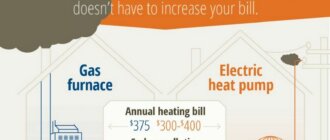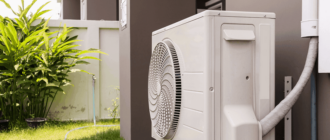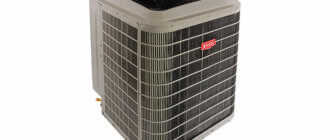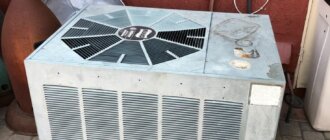Three HVAC Heating Tips and Tricks
Winter is here, and it’s time to crank up the heat! But before you do, have you considered how much energy your HVAC heating system consumes? An efficient heating system not only saves energy but also reduces your monthly bills. In this blog post, we’ll share three HVAC heating tips and tricks that will help keep your home warm and cozy while saving money on energy costs. So sit back, grab a cup of hot cocoa, and read on to learn how to maximize the efficiency of your HVAC heating system!
The Impact of These Tips on Your HVAC Heating Efficiency
Efficient HVAC heating is crucial for comfortable living and energy savings. By following these simple tips and tricks, you can ensure that your HVAC system operates efficiently all year round.
One of the significant benefits of implementing these heating tips is cost savings. With an efficient HVAC system, you will be able to save money on your energy bills each month. This not only helps with reducing expenses but also makes a positive impact on the environment by reducing carbon footprint.
Another advantage of having an efficient HVAC system is improved indoor air quality. A well-maintained system ensures that clean and healthy air circulates throughout your home or office. Dust, allergens, and pollutants are effectively filtered out from the air supply, creating a healthier living environment.
In addition to saving costs and improving indoor air quality, efficient HVAC systems require fewer repairs over time. Regular maintenance checks coupled with following these three tips can help extend the lifespan of your unit while minimizing repair expenses.
By taking care of your HVAC heating system properly using our tips and tricks guide above, you’ll enjoy reliable comfort in every season without worrying about high costs or faulty equipment!
The Importance of Efficient HVAC Heating
Efficient HVAC heating is important for many reasons. Firstly, it can save you a significant amount of money on your energy bills. When your HVAC system is running efficiently, it doesn’t have to work as hard to heat your home, which means it uses less energy. This not only reduces your carbon footprint but also saves you money in the long run.
Secondly, efficient HVAC heating ensures that every room in your house stays at a comfortable temperature. Uneven temperatures throughout the house can be frustrating and uncomfortable for those living there. An efficient system helps distribute warm air evenly throughout the entire household.
Moreover, an efficient heating system requires fewer repairs and maintenance services over time. Regular servicing of the unit by professionals will help keep it working well and prevent breakdowns during freezing weather conditions when you need it most.
An inefficient HVAC system may emit harmful gases such as carbon monoxide into your home’s indoor environment causing serious health problems or even death if left unchecked for extended periods of time.
Investing in an efficient HVAC heating system can bring numerous benefits ranging from cost savings to improved indoor air quality making sure that everyone in the household remains safe while staying warm all winter long!
HVAC Heating Tip
One of the most important tips for efficient HVAC heating is to keep your system well-maintained. This means scheduling regular maintenance checks and cleanings with a professional technician.
Another tip is to make sure that your thermostat is set at an appropriate temperature. Setting it too high will waste energy, while setting it too low can be uncomfortable and inefficient.
Consider investing in a programmable thermostat so you can easily adjust temperatures based on your schedule. For example, you can lower the temperature when you’re away from home or asleep, then raise it back up when you return.
Don’t forget about proper insulation! Insulating your home properly can help prevent heat loss and improve overall efficiency. Make sure that all windows and doors are tightly sealed, and consider adding extra insulation in areas like attics or basements.
By following these HVAC heating tips, you’ll not only save money on energy bills but also extend the life of your heating system. It’s always best to consult with a professional HVAC technician for personalized recommendations based on your specific needs and home setup.
Tip one: Clean and Replace Air Filters
The air filters in your HVAC system play a crucial role in your heating efficiency. Dirty or clogged filters can cause your system to work harder, leading to higher energy bills and potentially damaging your unit. Therefore, it is essential to clean or replace them every few months.
When air filters are dirty, they obstruct airflow, forcing the unit to work harder by exerting more force on the blower motor. This extra effort results not only in increased energy consumption but also increases the chance of wear and tear on the furnace’s internal components.
Cleaning air filters regularly ensures that you maintain good indoor air quality by keeping harmful particles from circulating throughout your home. It also helps prolong the life of your HVAC system while saving money on utility bills.
In summary, cleaning or replacing air filters may seem like a simple task; however, it can have significant impacts on both indoor comfort and heating system efficiency.
Tip two: Invest in Regular Maintenance for Your HVAC Heating System
Regular maintenance is crucial to keep your heating system running efficiently. Neglecting it can cause severe problems that may lead to costly repairs or even replacement.
One critical aspect of maintaining your HVAC heating system is changing the air filter regularly. A clogged air filter restricts airflow, making your furnace work harder than necessary and reducing its efficiency. It also contributes to poor indoor air quality, which can cause health issues.
Besides changing the air filter, it’s essential to schedule an annual tune-up with a professional technician. They will inspect and clean all the components of your heating system, including ductwork, blowers, motors, belts, and electrical connections. This will help identify any potential problems early on before they turn into major issues.
Moreover, regular maintenance can extend the lifespan of your HVAC heating system by ensuring that it operates at optimal levels throughout its life span.
Investing in regular maintenance may seem like an extra expense initially but consider it as a long-term investment that could save you money on energy bills while avoiding costly repairs down the line.
Tip three: Regular Maintenance is Key
Regular maintenance of your HVAC heating system is essential for its efficient and smooth functioning. It ensures that your heating system runs at peak efficiency, reducing energy wastage and saving you money on utility bills.
One key aspect of regular maintenance involves changing the air filter every three months or sooner if it becomes clogged with dust and debris. A dirty filter can restrict airflow, causing your HVAC system to work harder than necessary and leading to increased wear and tear.
Another important maintenance task is cleaning the evaporator coil annually. Over time, this coil can become coated with dirt and grime, reducing its ability to transfer heat effectively. A professional technician can clean the coil using specialized equipment, restoring optimal performance to your heating system.
Scheduling an annual tune-up by a licensed HVAC technician will ensure that all components are in good working order before winter arrives. The technician will check for leaks in ductwork, lubricate moving parts as needed, inspect electrical connections, test thermostat accuracy, and calibrate pressure levels so that everything works together efficiently.
By following these tips for regular maintenance of your HVAC heating system, you’ll enjoy reliable comfort throughout the winter season while also saving money on energy costs over time!
How to know when your HVAC system needs to be replaced
Your HVAC system is crucial to your home’s comfort, but it won’t last forever. Here are some signs that it might be time to replace your HVAC unit:
Firstly, age is a significant factor in determining if you need a new unit. If your heating system is over 15 years old and has required frequent repairs in the past year, then it may be time for an upgrade.
Secondly, high energy bills can indicate that your HVAC unit isn’t working efficiently anymore. Older units have lower efficiency ratings and require more energy to heat or cool your home than newer models.
Thirdly, strange noises coming from the furnace or air conditioner could also signal problems with the system. Listen out for any squeaking, rattling, or grinding sounds as they could indicate mechanical issues within the machinery.
Poor indoor air quality can also suggest issues with an aging heating system. Mold growth around vents and allergies caused by dust particles should not be ignored as they can negatively affect health over time.
By taking note of these warning signs and hiring experienced technicians for regular check-ups on maintenance needs will help ensure that you get maximum life expectancy from your HVAC equipment while keeping costs down over its lifetime use.
Conclusion
Efficient HVAC heating is crucial for keeping your home comfortable and minimizing energy costs. By following the three tips outlined in this article, you can ensure that your heating system runs smoothly throughout the winter months. Remember to regularly change air filters, seal any drafts or leaks around windows and doors, and schedule regular maintenance with a professional HVAC technician.
If your heating system is old or showing signs of wear and tear, it may be time to consider replacing it altogether. This investment can pay off in the long run by reducing energy bills and improving indoor air quality.
Whether you’re looking to save money on utilities or simply stay warm during colder weather, these HVAC heating tips are an excellent place to start. With a little effort and attention to detail, you can keep your home cozy without breaking the bank!
Recent Queries:





